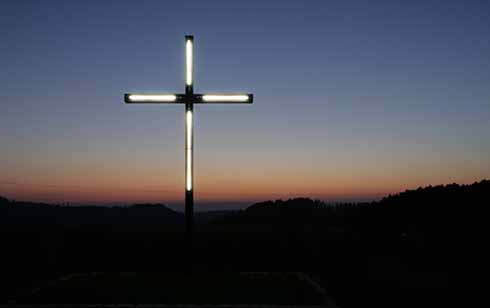 As we prepare for the Holy Year of 2025, Pope Francis has encouraged young people across the globe to approach their life journey ‘as pilgrims and not just sightseers seeking the perfect selfie’. His message challenges all of us, not just young people, to avoid being ‘like superficial sightseers, blind to the beauty around you, never discovering the meaning of the roads you take, interested only in a few fleeting moments to capture in a selfie’. That is what tourists do, not conscientious pilgrims.
As we prepare for the Holy Year of 2025, Pope Francis has encouraged young people across the globe to approach their life journey ‘as pilgrims and not just sightseers seeking the perfect selfie’. His message challenges all of us, not just young people, to avoid being ‘like superficial sightseers, blind to the beauty around you, never discovering the meaning of the roads you take, interested only in a few fleeting moments to capture in a selfie’. That is what tourists do, not conscientious pilgrims.
In contrast, the Pope invites all of us to remember that we are pilgrims in life, who ‘immerse themselves fully in the places they encounter, listen to the message they communicate and make them a part of their quest for happiness and fulfilment’.
BECOME NEW
Somewhere in his prodigious writings, the former Chief Rabbi of the Commonwealth, Jonathan Sacks, makes a similar distinction between the pilgrim and the tourist. Pilgrims are those people who want to engage with the world and not be mere spectators, people whose goal is less to reach a particular destination than to be transformed in the journey itself.
A tourist goes somewhere to see something new, while a pilgrim goes somewhere to become someone new. Indeed, tourism protects tourists from becoming someone new by insulating them from the unfamiliar or the uncomfortable.
In an excellent article on ‘Humility – a pilgrim’s virtue’, Lisa Fullam pointed out that the pilgrim is a risk-taker: ‘The mark of a pilgrim, then, is vulnerability but also receptivity, openness to the gifts offered along the way. A pilgrim’s journey is a vote of confidence that God will look out for the wandering stranger as God cared for Israel in the desert . . . Humility begins with the acknowledgment that we are vulnerable.’
As we move into a new year, a Jubilee Holy Year in fact, all of us need to have this spirit of being a pilgrim, of just passing through, of being in transition.
FOCUS ON ‘ETERNITY’
In other words, all of us need to travel in life with our focus on ‘eternity’, on finding God in all things. If we focus on things, and lose sight of God in them, of ‘eternity’, we lose our way. To be a pilgrim we have to travel light, we cannot carry too much baggage.
Those of us who carry extra baggage such as fears, prejudices, resentments and failures to forgive will not move very far in life at all. The way we travel is just as important, if not more important, than arriving at a destination.
Indeed we want to travel with hope.
Recently I heard someone on the radio – I think seriously – referring to himself as ‘a professional alarmist’, and while I laughed at the time, it is true that there are those among us who see a communist or, worse still, a Jesuit lurking dangerously behind every bush. There are those professional alarmists – the cynics, the scoffers and mockers as the Second Book of Chronicles calls them – who sit on the margins of life and scorn with their negativity the generous players of any game or activity. They are too fearful to get involved as participants themselves.
INCURABLE HOPEFULS
Professional alarmists and their first cousins the knockers come up against a brick wall when they are confronted by those professional and incurable hopefuls, the Christians. People captivated by Jesus as their Risen friend overpower by their enduring hope all those merchants of gloom and doom who throw stones from the sidelines.
American Benedictine nun Joan Chittister, in her marvellous book Called to Question, confirms this for us:
‘Gardens have a way of reminding us that death is never forever, no matter what it is that we think we have lost. “All shall be well, and all manner of things shall be well,” Julian of Norwich wrote . . . It is learning to believe that in the end “all shall be well” that may really be the central task of life . . . I must come to realise that all of life is part of the beauty of life. Otherwise, in the desire to be somewhere else, I may miss where I am – and what I am, as well.’
Hope is not wishful thinking or fanciful day-dreaming. That is simply optimism.
No, hope is based on the conviction that, whatever the misery and gloom facing us and presented in television news services each day, our all-powerful and all-loving God is still in charge of his world and will keep his promises to be always and everywhere faithful.
LIGHT OF HOPE
Canadian priest Ronald Rolheiser OMI has told the story of how the people of South Africa lived in hope that one day the evils of apartheid would be overcome. To this end they lit candles and placed them in their windows for their neighbours, the government and the whole world, to see their belief.
So fearful of this action was the government that an act was passed to make it illegal to light a candle and place it in a window.
In the end, ‘morally shamed by its own people, the government conceded that apartheid was wrong and dismantled it without a war’.
Defeated by the hope of the people and brought down by lit candles, apartheid was no more. The light of hope had overcome the darkness once again.